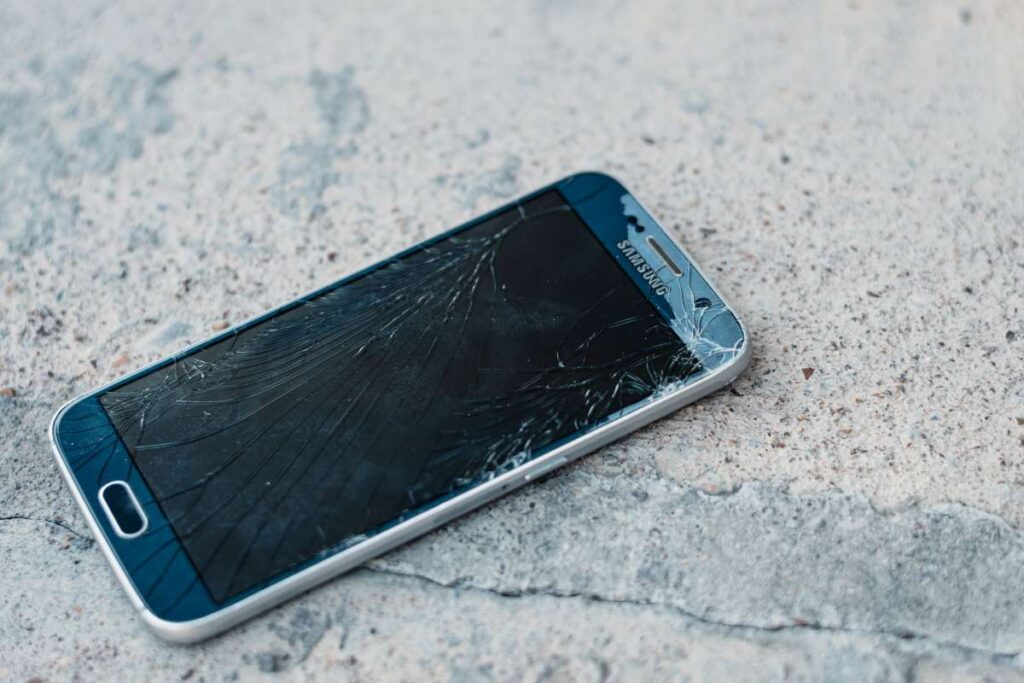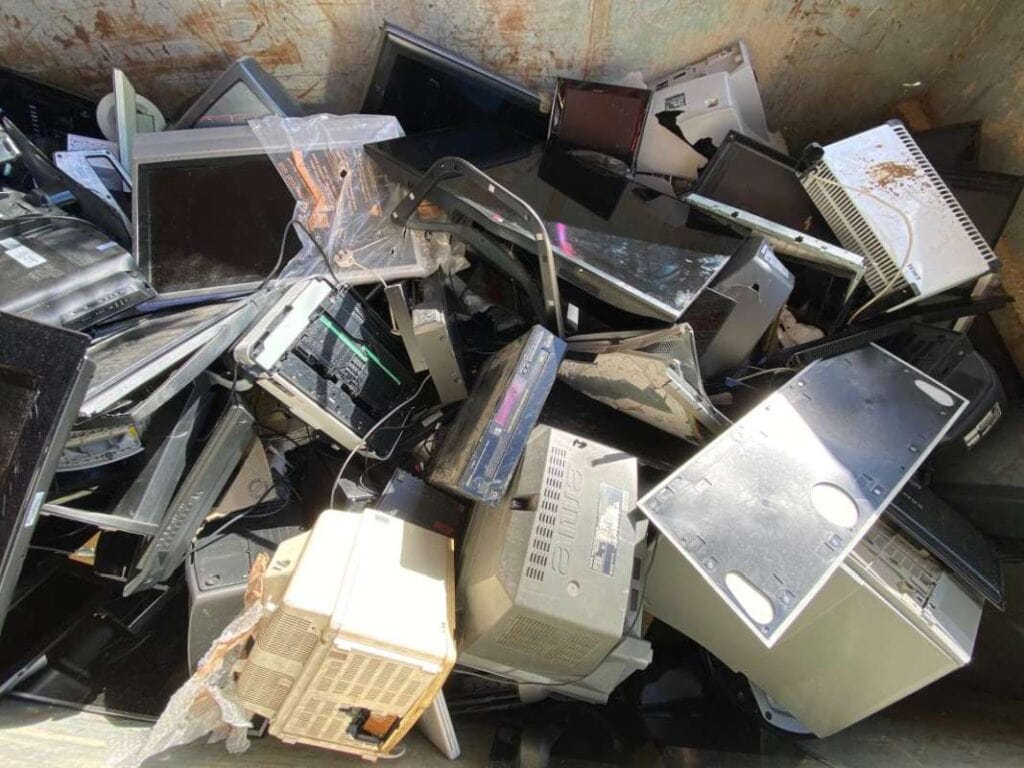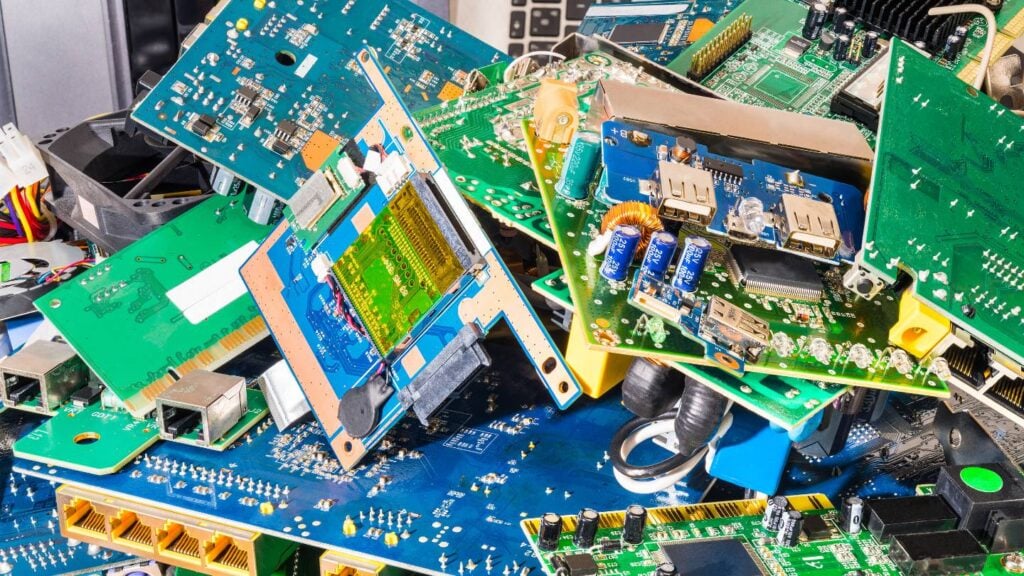E-waste, or electronic waste, is on the rise and poses serious threats to people's and planet's health.
Toxic substances, such as lead and mercury, can leach from electronics and pollute soil, water, and air, posing serious health risks if they are disposed of incorrectly. However, eco-friendly and money-making benefits can be gained from recycling electronic waste properly.
This article will discuss the value of recycling electronic waste and how it can contribute to a greener tomorrow.
What Do You Mean By E-Waste?
We're sure you've heard of e-waste. It causes a lot of excitement in the marketplace. The industrialised world in particular. Let's define what "e-waste" means.
The term "e-waste" refers to discarded electronic devices. Recycling used electrical and electronic equipment is a crucial part of e-waste management. When an electronic product reaches the end of its useful life, it is discarded and becomes electronic waste. Any unwanted or obsolete electronic device is classified as electronic waste. E-waste refers to unwanted electronics that will be processed for material recovery, recycling, reuse, or resale.
Rapid technological progress leads to the production of a great deal of electronics, much of which ends up as e-waste. Connect with e-waste management consultants here if you need assistance with E-waste related regulation. They are experts in all aspects of the E waste industry, including regulations, treatment, disposal, procurement, and resale.
Effects Of E-Waste On The Environment And Safety
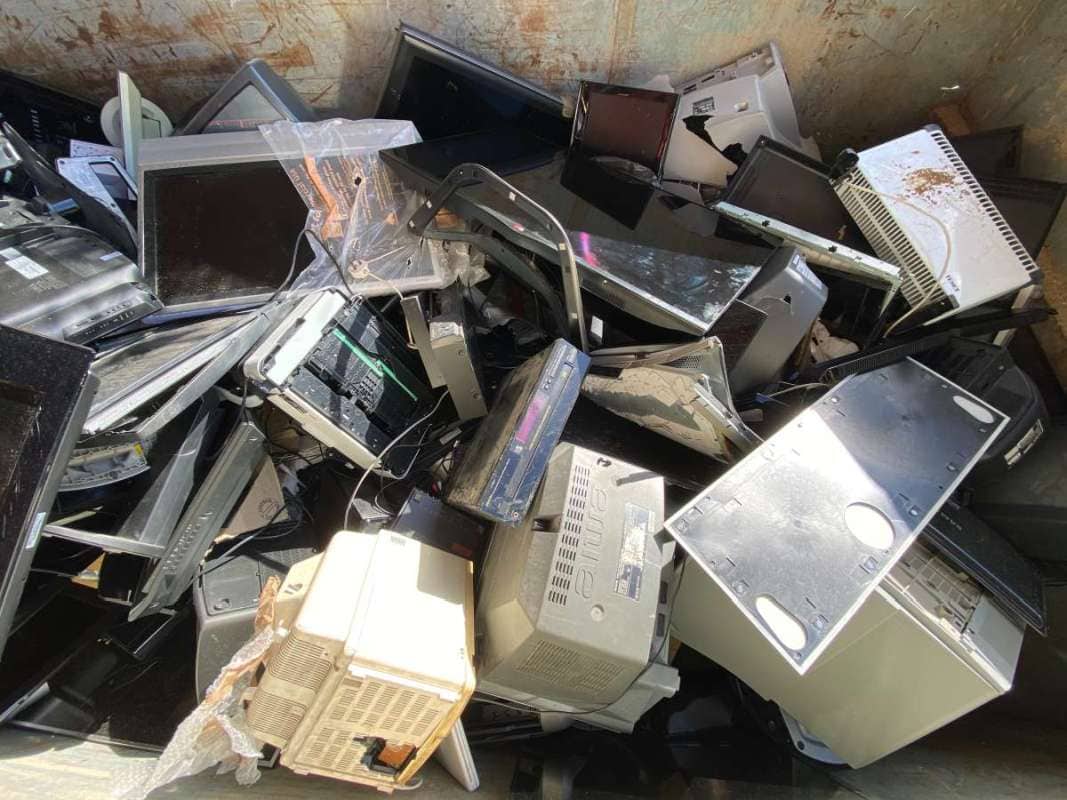
Understanding the risks that e-waste poses to ecosystems and human health is essential before delving into the many ways in which recycling can improve the world. Some broad findings are summed up below:
- Lead, nickel, zinc, and chromium are just a few of the toxic elements found in common electronic components. When released into the environment, these can harm people through direct contact or ingestion.
- When this trash is burned without proper ventilation, toxic gases are released into the air and harm the ozone layer and other parts of the atmosphere.
- Electronic waste that is dumped in landfills can leach into the groundwater and harm both terrestrial and aquatic ecosystems. Many fish that perish for unknown reasons have traces of these poisons in their bodies.
- Humans who come into contact with e-waste through inhalation, topical application, or ingestion may experience a variety of health issues.
- Some areas have become toxic for humans and other animals due to the dumping of electronic waste there. Among the top 10 most toxic threats in the world is the Agbogbloshie region of Ghana, which is home to one of the continent's largest informal e-waste dumping sites.
- Plants die from exposure to e-waste's toxic substances, and farmers see lower yields as a result. Both people and animals will starve if the agricultural sector isn't strong.
- Toxic gases alter the composition of the atmosphere, which in turn causes climatic shifts like global warming.
- The recycling industry has expanded greatly despite the continuing expansion of the e-waste problem. Hundreds of thousands of people have jobs recycling electronic waste in specific locations around the world. Nearly 70% of all electronic waste recycling occurs in China. Without appropriate recycling, much of this trash winds up in the hands of scrap metal collectors.
Environmental Advantages Of Electronic Waste Recycling
Reduced Mining Of Virgin Resources
Most electronic parts require the mining of minerals and metallic elements from a variety of locations around the globe. Rapid depletion of resources and environmental damage result from ongoing mining operations.
Statistics on conflict minerals show that illegal mining is on the rise in and around the country, with negative consequences for local economies and communities. E-waste recycling yields a remarkable quantity of valuable metals and minerals, such as tin, gold, palladium, copper, and silver, from items like circuit boards.
For instance, salvaging tin from used electronics has a sizeable impact on the amount of tin extracted from mines. Consider that one tonne of circuit boards contains as much as 30 to 40 times as much copper and as much as 40 times as much gold as one tonne of ore.
Offers Manufacturers Eco-Friendly Resources
All electronic devices rely on a limited pool of metals and plastics. When things are thrown away, more metal and plastic resources need to be mined, and the waste is bad for the environment. Instead, recycling old electronics is a great way to protect the environment from e-waste and stop the wasteful use of natural resources.
Humans and ecosystems are exposed to more biohazards when these metal elements are dumped instead of recycled. By collecting and recycling electronic waste, manufacturers can create new products from recyclable metals and plastics. For example, the aluminium ingot made from recycled hard drives can be used in the automobile industry. This results in less consumption of such materials and less electronic waste being released into the environment.
Prevent Usage Of Landfills
All forms of life, from humans to plants to animals, are negatively affected by landfills. When people don't properly recycle their electronic waste, it often falls into the hands of informal waste operators who then dump it in landfills. The metals, plastics, and toxins contained in this e-waste eventually seep through the ground in landfills and into nearby water supplies.
More improperly recycled electronic waste means more landfill space is needed. Reducing the amount of electronic waste sent to landfills, which can have harmful effects on ecosystems and water supplies, is one advantage of recycling. You can trust that elements that can be reused and recycled will be when you entrust your e-waste to certified recyclers.
Protect Bodies Of Water From Toxic Waste Poisoning
Toxic chemicals leaked from landfills end up in wells and bodies of freshwater that aren't very far away, as we've seen. People and animals who drink this water quickly become ill from the chemical contamination.
By collecting and recycling electronic waste, we can keep water supplies clean and free of harmful chemicals. One advantage of recycling electronic waste is that it contributes to cleaner water.
Save Land And Energy
Primary metal production involves extensive use of both energy and land for ore mining. Damage is done to the environment when a site is dug up or drilled into and then abandoned as waste. We think you'll agree that a landscape full of holes and craters is unappealing. And when it rains hard, some of these holes actually make the ground around them more unstable.
In addition to helping global environmentalists save energy and prevent land wastage, recycling electronics can help put a stop to continuous mining. We can't afford to waste energy, and recycling electronic waste is one way to show our appreciation for nature's generosity.
Recycling E-Waste Lowers Air Pollution
One of the advantages of recycling electronics is that it helps cut down on emissions of harmful gases. Do your part to protect the air we breathe by recycling old electronics instead of burning them. This will prevent the release of harmful gases into the atmosphere. You may have heard that when components of e-waste are heated to high temperatures, they release poisonous gases into the air that are bad for living things.
Blasting on rocks releases gases like carbon dioxide, sulphur dioxide, and dust in the mining process. One tonne of gold or platinum, for instance, results in the release of around 10,000 tonnes of carbon dioxide. Recycling electronic equipment significantly reduces the release of pollutants into the atmosphere.
Electronic Recycling Protects Agricultural Soil.
Recycling electronic waste not only keeps poisonous chemicals from seeping into the soil, where they could harm plant growth, but also keeps mining operations from releasing poisonous gases and dust onto nearby farmland. Making sure fields are fertile and safe to grow plants is crucial to promoting overall human wellbeing as a large percentage of the world's population relies on agriculture as a livelihood source.
One advantage of recycling electronics is that it helps keep soil in good condition, which in turn benefits farming and the expansion of natural green resources for humans, animals, and vegetation. Cleaner air and a safer community are two of the many benefits of a greener environment.
Cut Back On Environmental Health Risks
People living in major garbage dumps like Guiyu have complained of skin diseases and other symptoms of improper e-waste disposal. If the surrounding area is unhealthy, the people living there will be too.
Electronic waste recycling is important because it removes potentially harmful substances from water, soil, and air. Safely recycling e-waste can help reduce pollution caused by metal leaching, toxic gas emissions, and dust created during the mining and combustion processes.
Promote Fisheries Resources
When dumped in landfills, the various toxins that make up e-waste seep into water sources, where they eventually kill fish and other aquatic organisms. Streams and rivers are contaminated with a wide variety of poisonous substances, including lead, copper, mercury, cadmium, and many others. As an example, mercury is a neurotoxin that can be fatal within minutes. Researchers have recently discovered high levels of mercury in dead fish that they attribute to human activities in and around water bodies.
Recycling electronic waste helps clean water for aquatic life and vegetation. Therefore, you contribute to protecting the freshwater ecosystem, which is vital to the survival of countless species and even human communities.
Availability Of More Resources In Recycling
You have discovered that many locations around the globe are dedicated to recycling electronic waste. The more electronic waste is given to recyclers, the more readily available resources they will have. When you recycle old electronics, you're actually creating more pure resources than if you had to mine and refine them from scratch.
One tonne of electronic devices typically contains more copper and gold than the same weight in ore. One of the advantages of recycling electronic waste is that the process of cleaning and reusing this to make other components is less damaging to the environment and yields more than digging through miles and miles of ground. Metals recovered from discarded electronic equipment can be used directly after being smelted into ingots. Most obsolete electronic equipment can be put to good use again after receiving a few upgrades.
Components Of E-Waste That Can Be Recycled
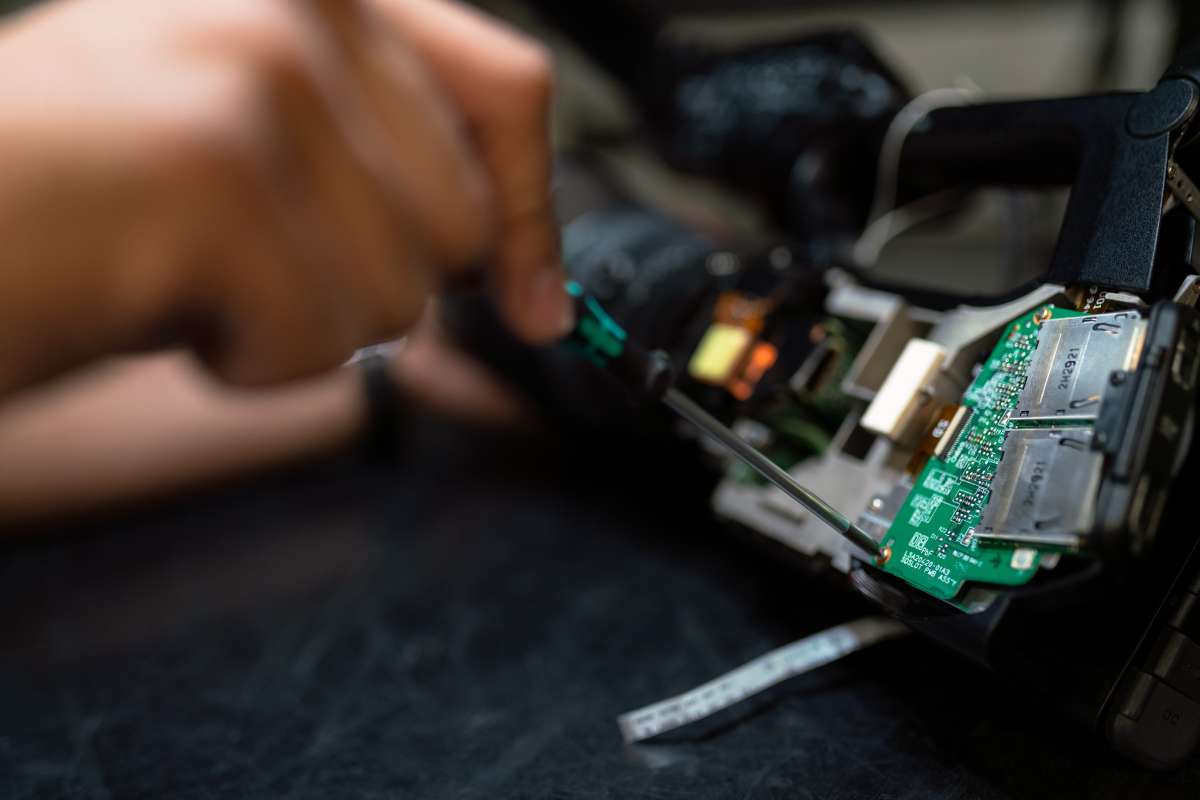
You'll agree that recycling electronic waste is a practise that needs to be supported on every level. Asking "what components can we recycle?" is a good place to start for anyone interested in recycling e-waste or trying to generate enthusiasm for the topic. You now know the solution.
Plastic
Recyclable plastics can be collected and shipped off. Plastic sleepers and vineyard stakes are just two examples of what can be made from recycled plastic by manufacturers. Posts for fencing, plastic storage bins, insulators, and tool racks are just some of the other items available.
Metal
Metals can also be salvaged and recycled into brand-new steel and metal goods.
Glass
Glass can be salvaged from old TVs and computer monitors using their cathode ray tubes (CRTs). However, there is a minor issue. Lead is just one of many potentially dangerous substances found in CRTS. And that's bad news for human health and the local ecosystem. Because of this, removing a glass from a CRT can be a challenge.
You can, however, take measures to guarantee safer CRT recycling.
To begin, take the CRT away from the screen. The CRT should be shredded into tiny bits. Magnets in an overband eject the metals. Both ferrous and non-ferrous metals can be easily extracted from the glass.
Washing lines can then be used to remove the phosphors and oxides from the glass. The final process is known as glass sorting. Here is where you get rid of the lead in your gas. The resulting extract can be used to develop improved display devices.
Mercury
Mercury-containing devices can be sent to recycling centres where the element will be safely removed using advanced equipment. Metric tools, dental amalgam, and fluorescent lighting are all byproducts of this process of elimination.
Circuit Boards
Tin, gold, silver, copper, palladium, and other valuable metals are smelted and recovered by reputable and expert businesses.
Hard Disk
Hard drives can be shredded and processed to retrieve aluminium ingots. This is especially helpful for autos.
Toner And Ink Cartridges
These toners and ink cartridges are accepted for recycling by a number of recycling companies in the remanufacturing industry. The reclaimed metals and plastics are then used as manufacturing inputs.
Batteries
The cadmium, steel, nickel, and cobalt in used batteries can be salvaged by taking them to specialised recyclers. They can be put to use in the production of stainless steel as well.
There is, of course, an infinite number of other objects as well. However, in general, you can hack your way into recycling just about anything. No, there is not a universal method for recycling electronic waste. There is, however, a standard procedure that can be followed.
FAQs About E-Waste Recycling
Electronic waste recycling is the process of recovering and reusing materials from discarded electronic devices such as computers, smartphones, televisions, and other electronic equipment.
The benefits of electronic waste recycling are numerous. It reduces the amount of electronic waste in landfills, conserves natural resources, saves energy, reduces greenhouse gas emissions, and creates jobs in the recycling industry.
Electronic waste recycling reduces the amount of waste in landfills by diverting electronic devices from landfills and recovering valuable materials for reuse. This reduces the volume of waste that needs to be buried in landfills and reduces the environmental impact of electronic waste.
Electronic waste recycling conserves natural resources by recovering and reusing valuable materials such as copper, aluminum, and gold from electronic devices. This reduces the need to mine for new materials, conserves energy, and reduces greenhouse gas emissions.
Electronic waste recycling saves energy by reducing the amount of energy needed to extract raw materials and manufacture new electronic devices. Recycling also requires less energy than producing new materials, as the recycled materials are already processed and ready for reuse.
Conclusion
The growing problem of electronic waste, or "e-waste," poses risks to both human and environmental health. Electronics can release harmful compounds that contaminate the ground, water, and air. However, proper recycling of e-waste can have positive impacts on the environment and the economy. Specialists in e-waste management have extensive knowledge of regulations, treatment, disposal, procurement, and resale. Before exploring the benefits of recycling, it is important to understand the dangers that e-waste poses to ecosystems and human health.
E-waste often contains toxic substances that can be absorbed through the skin or digestive tract. When improperly disposed of, e-waste can contaminate terrestrial and aquatic environments, and even leak into groundwater. Informal e-waste dumping sites, like the one in the Agbogbloshie district of Ghana, have become poisonous as a result. Despite these challenges, the recycling business has grown significantly, with China now recycling 70% of the world's electronic garbage. Valuable metals and minerals, like tin, gold, palladium, copper, and silver, can be extracted from e-waste through recycling processes.
Recycling used electronics can help protect the environment and conserve natural resources. By collecting and recycling e-waste, manufacturers can avoid dangerous waste from polluting water sources, conserve land and energy, and create new products from recyclable materials. It also reduces the amount of potentially hazardous electrical waste that ends up in landfills. Electronic waste recycling is essential for reducing carbon emissions and landfill waste, and it produces cleaner air while preserving agricultural land and safeguarding environmental health.
Incinerating electronic waste can release toxic gases into the atmosphere. Recycling electronic waste helps prevent pollution sources like metal leaching, hazardous gas emissions, and dust formed during mining and combustion.
It also helps remove harmful substances from water, preserving freshwater ecology. Recycling electronic waste can also produce purer materials than mining and refining. Additionally, reusable parts of electronic waste, like plastic sleepers and vineyard stakes, fencing posts, storage bins, insulators, and tool racks, can be transformed into new steel and metal products.
Almost every component of an electronic device can be recycled, including batteries, toner and ink cartridges, circuit boards, hard drives, and even molten mercury. Proper recycling techniques for specific components, like cathode ray tubes (CRTs), are necessary to avoid harmful substances like lead. Safe CRT recycling involves shredding the tube into small pieces, using magnets to extract metals, washing lines to remove phosphors and oxides, and glass sorting to extract lead.
While there is no one-size-fits-all approach for effectively recycling electronic waste, following a general process can help. Recycling e-waste can have positive effects on the environment and the economy, and should be encouraged at all levels.
Content Summary
- E-waste poses serious threats to people's and planet's health.
- Eco-friendly and money-making benefits can be gained from recycling electronic waste properly.
- The term "e-waste" refers to discarded electronic devices.
- Rapid technological progress leads to the production of a great deal of electronics, much of which ends up as e-waste.
- Lead, nickel, zinc, and chromium are just a few of the toxic elements found in common electronic components.
- When released into the environment, these can harm people through direct contact or ingestion.
- Electronic waste that is dumped in landfills can leach into the groundwater and harm both terrestrial and aquatic ecosystems.
- Humans who come into contact with e-waste through inhalation, topical application, or ingestion may experience a variety of health issues.
- Plants die from exposure to e-waste's toxic substances, and farmers see lower yields as a result.
- The recycling industry has expanded greatly despite the continuing expansion of the e-waste problem.
- Nearly 70% of all electronic waste recycling occurs in China.
- E-waste recycling yields a remarkable quantity of valuable metals and minerals, such as tin, gold, palladium, copper, and silver, from items like circuit boards.
- Consider that one tonne of circuit boards contains as much as 30 to 40 times as much copper and as much as 40 times as much gold as one tonne of ore.
- By collecting and recycling electronic waste, manufacturers can create new products from recyclable metals and plastics.
- Preventing usage of landfills is an advantage of recycling electronic waste.
- The metals, plastics, and toxins contained in e-waste eventually seep through the ground in landfills and into nearby water supplies.
- Recycling electronic waste is a great way to protect the environment from e-waste and stop the wasteful use of natural resources.
- Recycling old electronics creates eco-friendly resources for manufacturers.
- Recycling electronic waste is a crucial part of e-waste management.
- Humans and ecosystems are exposed to more biohazards when metal elements are dumped instead of recycled.
- Electronic waste that is burned without proper ventilation releases toxic gases into the air and harms the ozone layer.
- Toxic gases alter the composition of the atmosphere, causing climatic shifts like global warming.
- Without appropriate recycling, much e-waste winds up in the hands of scrap metal collectors.
- Statistics on conflict minerals show that illegal mining is on the rise in and around the country, with negative consequences for local economies and communities.
- Salvaging tin from used electronics has a sizeable impact on the amount of tin extracted from mines.
- Reducing the amount of electronic waste sent to landfills is one advantage of recycling.
- Landfills can have harmful effects on ecosystems and water supplies.
- You can trust that elements that can be reused and recycled will be when you entrust your e-waste to certified recyclers.
- Toxic substances, such as lead and mercury, can leach from electronics and pollute soil, water, and air.
- The Agbogbloshie region of Ghana is home to one of the continent's largest informal e-waste dumping sites and is among the top 10 most toxic threats in the world.
